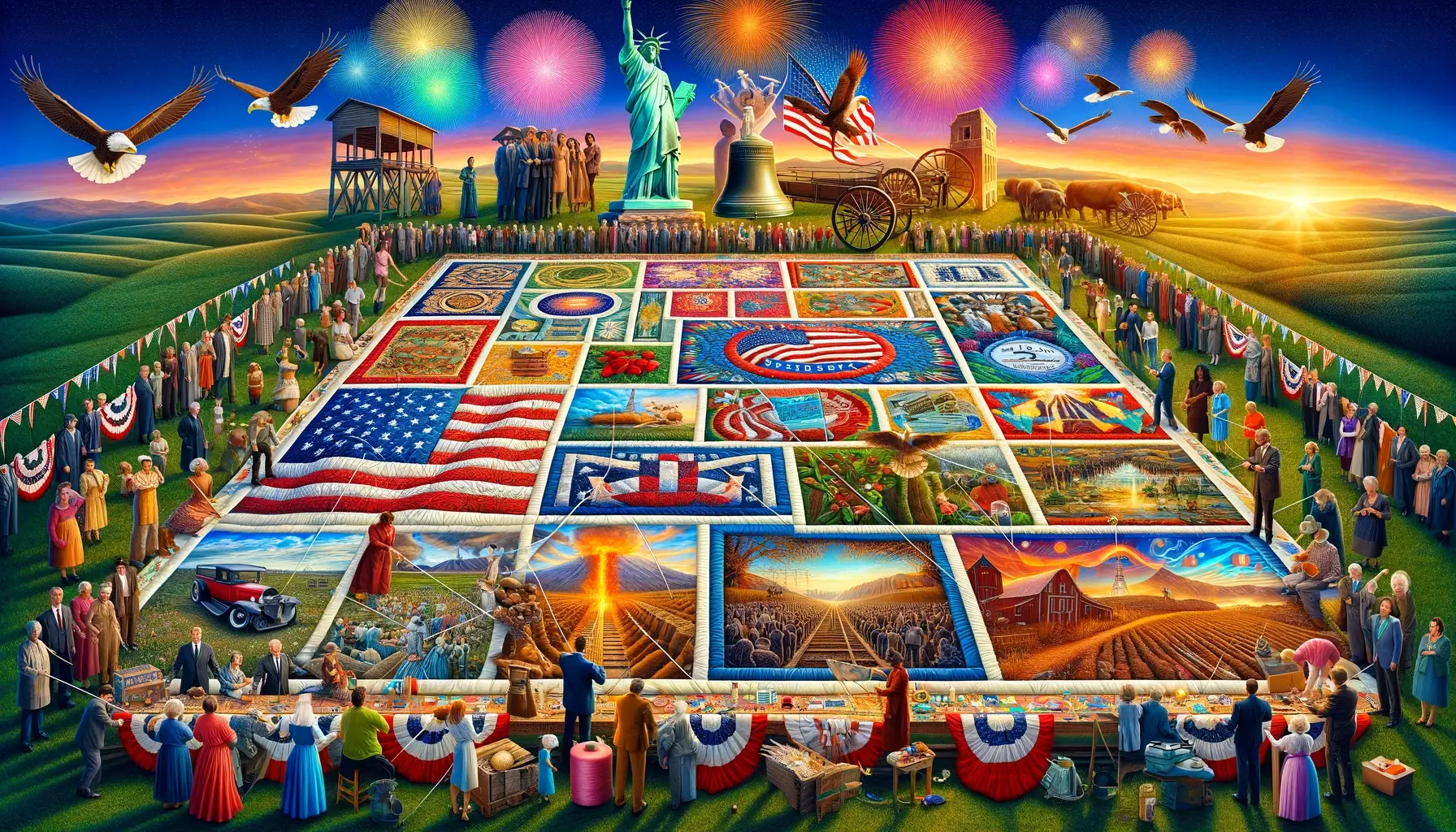At a time when the very essence of American culture is caught in the crossfire of a profound ideological struggle, it has never been more critical to take a stand for the values etched into the nation’s foundation. This is a call to patriots who cherish the quintessential American ideals of liberty, self-reliance, and democratic unity. This pivotal article delves deep into the heart of the cultural conflict, dissecting the erosion of traditional values and charting a course for the resurgence of patriotic movements. With a torch of enlightenment, it offers bold strategies for individuals and communities to reclaim control of the American narrative, ensuring the survival and celebration of a legacy through cultural preservation that resonates with the unwavering spirit of the Founding Fathers. Join the vanguard in this clarion battle for America's cultural soul and become an artisan in reshaping the nation's future.
Cultural Preservation
Defining Cultural Preservation
Cultural preservation, at its core, is the concerted effort to maintain and uphold the cultural identity and traditional values that have shaped a society. In the context of the United States, it involves safeguarding the customs, beliefs, and American heritage that are the bedrock of the national narrative. These elements include everything from historical monuments and national traditions to the principles laid down by the Founding Fathers. The act of cultural preservation is intrinsic to ensuring that the historical significance and ethos of the American way of life persist through time.
The Current State of America's Cultural Identity
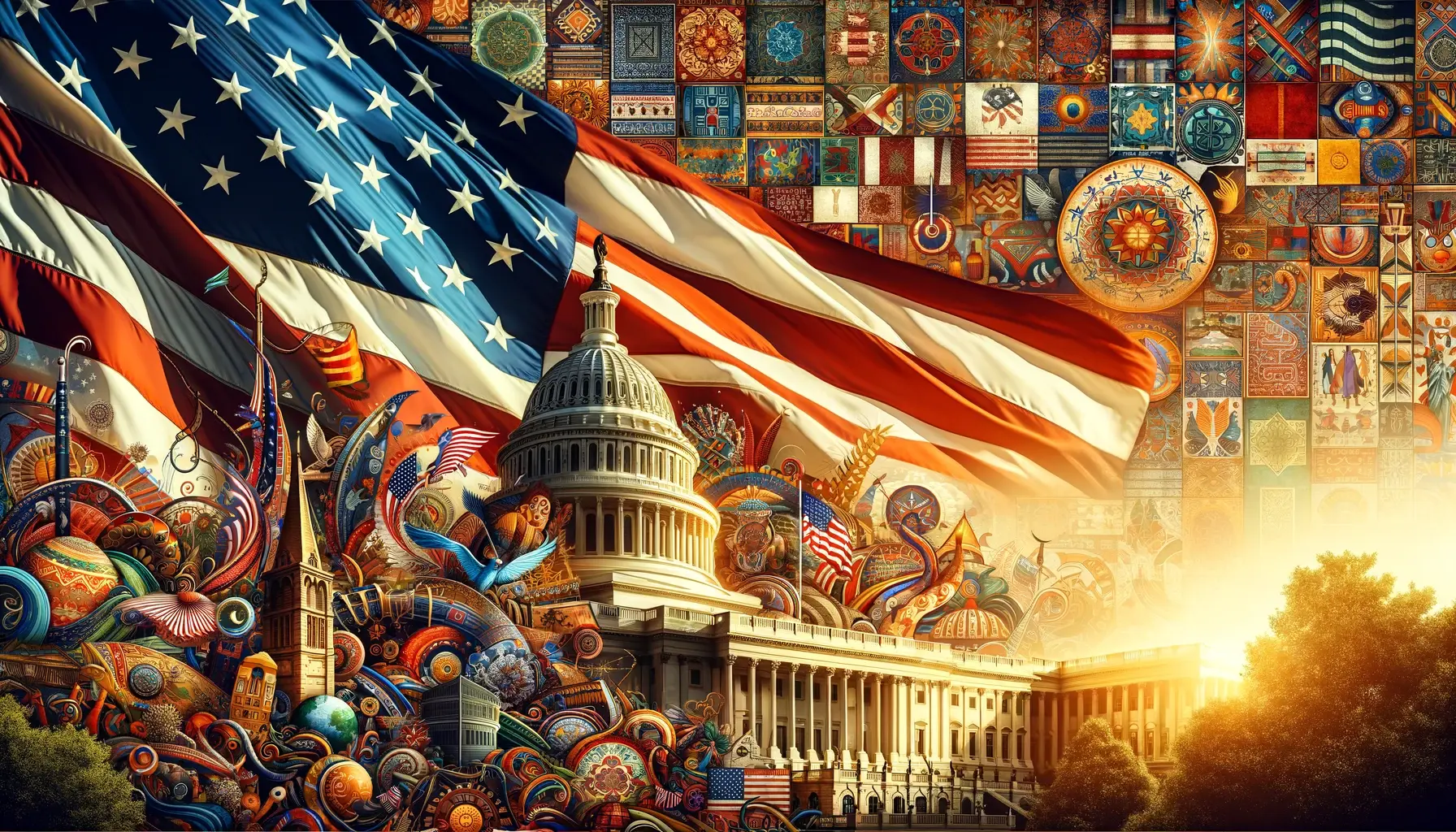
Today, America finds itself at a pivotal juncture, facing an identity crisis that challenges the ideological foundations of its democracy. The erosion of traditional American values has given rise to numerous cultural controversies, stemming from political polarization, the rise of moral relativism, and the growing influence of cultural Marxism within academic circles. The American cultural landscape is shifting under the weight of globalization, leading to cultural homogenization that often conflicts with the principles of American exceptionalism and civic responsibility.
The Need for Reclaiming the Narrative
The importance of reclaiming our cultural narrative cannot be overstated. In recent years, the battle for America's heart and soul has intensified, with the rise of progressive narratives often overshadowing the narrative dominance of American patriotism and the Constitution's values. The imperative to engage in this struggle is not rooted in nostalgia or resistance to change but stems from a profound sense of civic nationalism and intellectual sovereignty. It's about protecting the cultural legacy and ensuring it is preserved inclusively, competing against forces that would seek to redefine our cultural identity and undermine the value transmission that is foundational to our national unity.
To reclaim the narrative is to actively ensure that future generations inherit a narrative that accurately represents the diverse heritage, self-reliance, and community spirit that have long been hallmark traits of the nation. It is to affirm our collective commitment to the American cultural landscape, embracing our past, and thoughtfully stewarding it into the future. By acknowledging the ideological warfare being waged, Americans can begin to repair the fabric of their society, build up their communal bonds, restore their place in public discourse, and take definitive steps to assert their narrative—with an awareness that cultural literacy and advocacy are crucial agents of change.
The Erosion of Traditional Values
Historical Perspective on American Values
The United States was founded on a unique set of values and principles, including liberty, self-governance, and the pursuit of happiness. These foundational values, derived from the philosophical ideals of the Enlightenment and enshrined in our Constitution, have historically set the framework for American society. Over time, these values have manifested in various traditions, cultural practices, and an overarching sense of American exceptionalism, which have become integral to the national identity. From the days of the early republic through the trials of subsequent centuries, traditional American values have been the compass guiding the nation's journey.
Examples of Cultural Shifts
In recent decades, significant cultural shifts have been observed across America. The family unit, once the quintessential element of the American social structure, has seen changes in its configuration and role. The principle of self-reliance has been challenged by an increase in collectivist thinking and dependency on welfare systems. Likewise, the educational system, once a beacon of cultural literacy and transmission of civic responsibility, has come under scrutiny for what some perceive as a shift towards revisionist history and political correctness that downplays America's unique heritage.

The valorization of individual freedom, a cornerstone of American identity, has begun to clash with new societal norms that seek to place community welfare over personal liberties. Simultaneously, the influence of corporate culture and hyper-commercialism has diluted the potency of grassroots movements, often overshadowing the rich tapestry of local and regional cultural expressions.
Impact on Society and National Identity
The erosion of these traditional values has had a profound impact on the fabric of American society, leading to a sense of disunity and a fragmentation of the national consciousness. As cultural relativism and moral relativism gain foothold, they erode the consensus on what constitutes American identity, challenging the narrative dominance that once cohered diverse populations. A culture war has emerged, reflecting a deeper ideological warfare that seeks to redefine the very meaning of being American.
The preservation of traditional values is not a call to reject progress, but rather an effort to maintain cultural sovereignty while evolving. As we witness the ideological battles play out in public discourse, education, and media representation, it becomes evident that America is at a cultural crossroads. The need for a renewed emphasis on the historical perspective, on understanding how and why America's values have changed, is critical to healing divisions and ensuring the cultural advocacy needed to sustain the nation's identity and continue the story of a resilient and pioneering people.
The Rise of Patriotic Movements
Overview of Patriotic Movements in U.S. History
America has a storied history of patriotic movements that have rallied individuals around the cause of preserving and protecting the nation's core values. From the Minutemen of the Revolutionary War to the Civil Rights activists who fought for the principle of equality, these movements have been critical in shaping America's destiny. In every era, patriots have stood up to assert American sovereignty and defend the constitutional values that serve as the bedrock of the nation.
Current Patriotic Movements and Their Goals
In today's sociopolitical climate, a resurgence of patriotic movements signifies a collective desire to restore the American narrative that many believe is under threat. Contemporary movements encompass a broad spectrum, including those advocating for Second Amendment rights, those seeking to preserve historical monuments as symbols of American ethos, and groups that emphasize the importance of national traditions. The goals of these movements often include the protection of American culture against globalization, defending national symbols from cultural homogenization, and promoting a form of civic nationalism that underscores American exceptionalism.
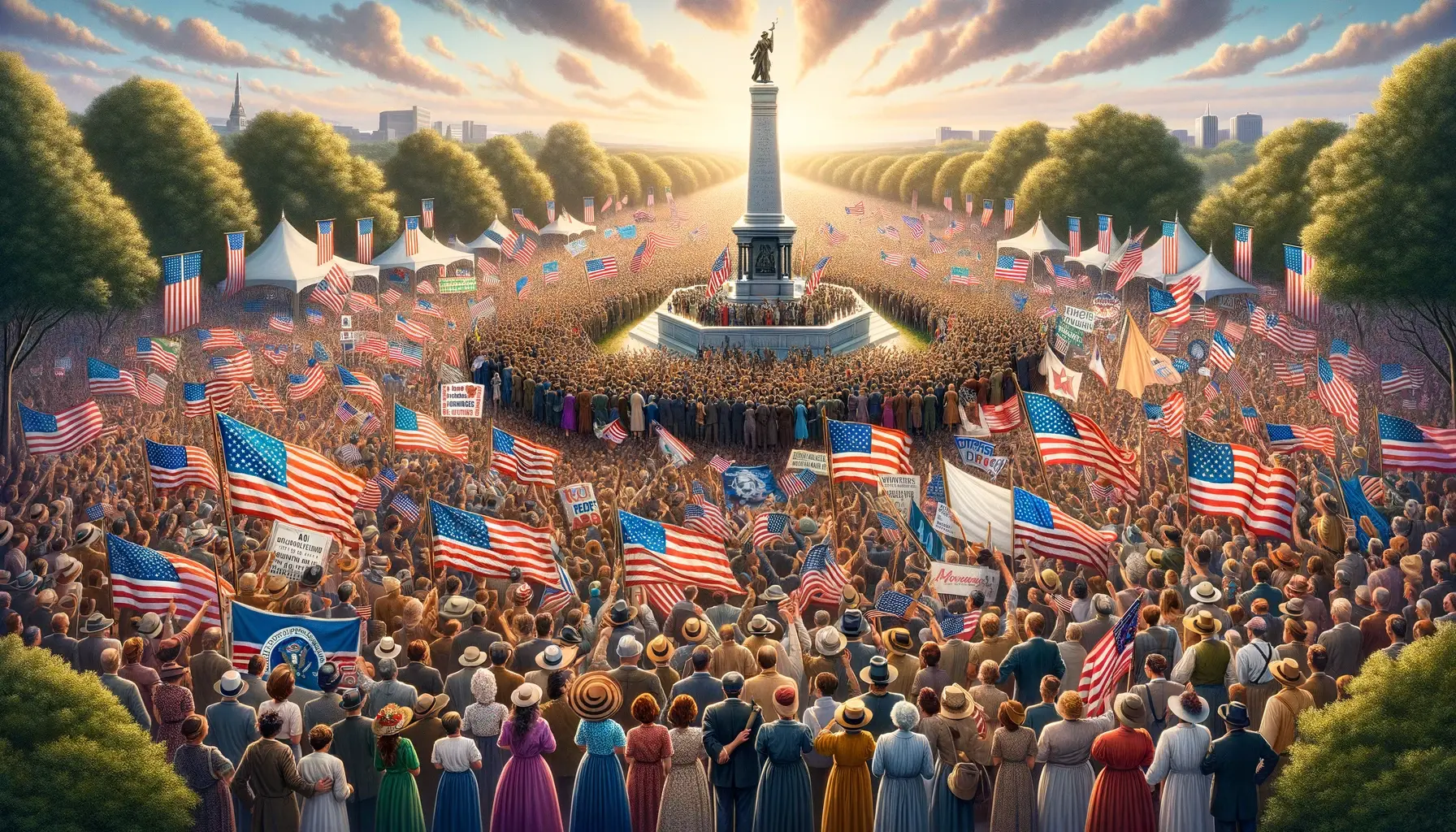
The Role of Patriotism in Cultural Preservation
Patriotism plays a vital role in the pursuit of cultural preservation as it fosters national unity and a shared sense of identity. By championing American heritage and historical significance, patriotic movements become not just defenders of the past but activists for the nation's future. They are driven by a sense of civic responsibility, aiming to sustain the fabric of American society through education, cultural advocacy, and public discourse.
These movements stand in stark contrast to forces seeking to redefine American identity and push a progressive narrative that may conflict with longstanding values. It is through the actions of these patriotic groups that a counter-narrative is offered—one that values the lessons of history, the primacy of the nation's founding principles, and the power of cultural literacy to unite rather than divide. They hold a mirror to society, urging it to remember and reclaim the elevated principles of freedom of speech, constitutional rights, and cultural sovereignty that have long differentiated the American narrative from others worldwide.
Patriotic movements remind Americans that their unique cultural landscape is a tapestry woven from the countless threads of individual and collective achievements, sacrifices, and a commitment to maintaining the integrity of America's cultural identity. These groups provide not just a nostalgic look back but a proactive stance, pressing for a future where traditional American values continue to be revered, taught, and celebrated. Through their efforts, the prospects of preserving the American cultural narrative become more than mere hope; they transform into tangible actions that seek to ensure the nation's enduring spirit across generations.
The Battle for America's Heart and Soul
The Ideological War over Culture
The United States is in the throes of an ideological war, a cultural conflict that has penetrated every aspect of society—from academia and media to the arts and political arenas. This war is not fought with weapons but with ideas, and the stakes are the cultural narrative and collective memory of a nation. The battleground of ideas has become contentious as various groups vie for the power to dictate what is considered mainstream and which narratives should be preserved or discarded. Ideological warriors employ tactics ranging from revisionist history to political socialization to shift the perception and respect for traditional American values.
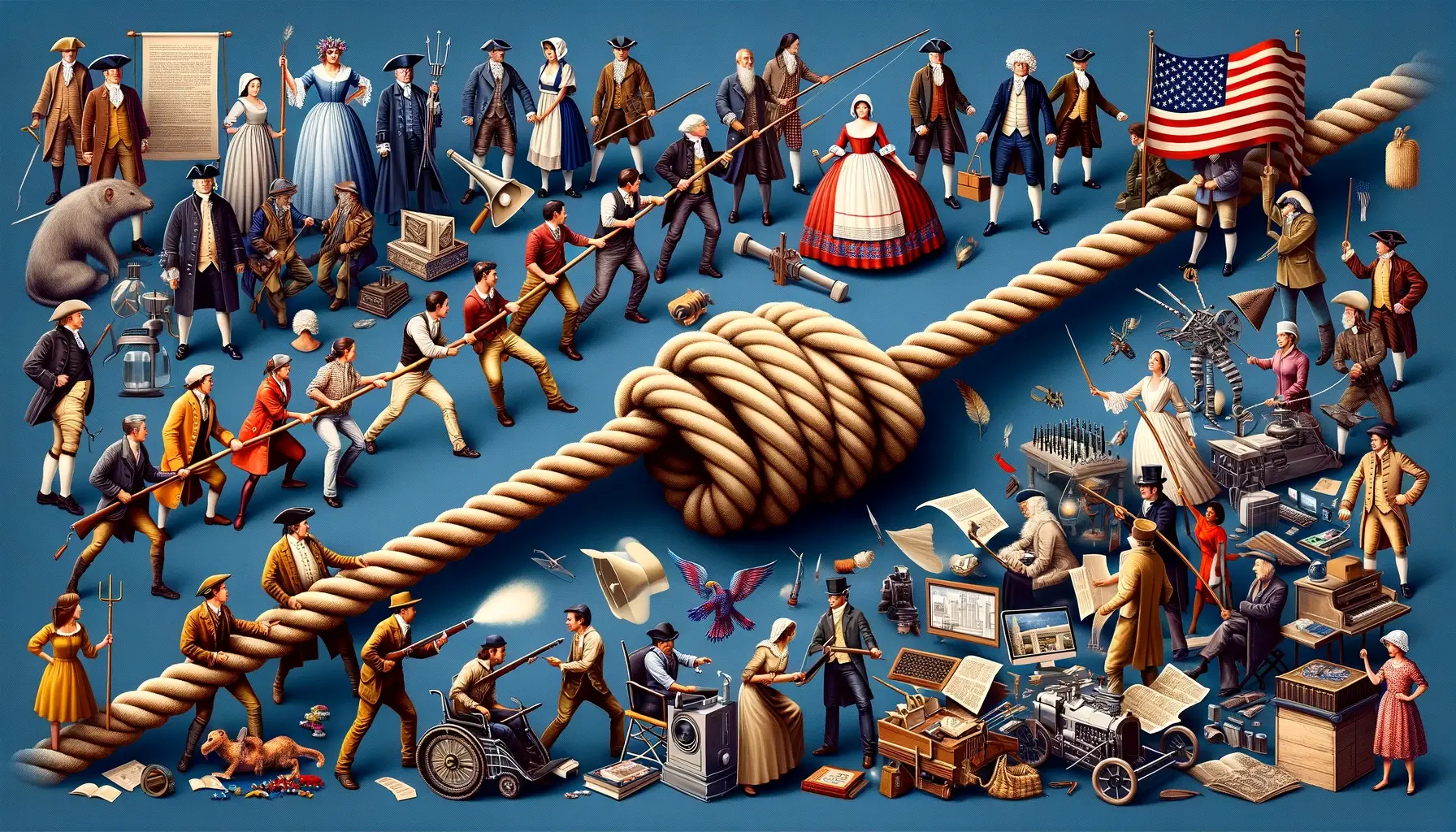
Tactics Used to Undermine Traditional Values
The erosion of foundational American principles has been propelled by diverse tactics aimed at undermining the country's heritage. These tactics include the suppression of historical context, the deconstruction of national symbols, and the promotion of moral relativism over the Constitution's enduring principles. Progressive narratives, often reinforced by political correctness and cultural Marxism, have sought to dismantle the notion of American exceptionalism, replacing it with a counter-narrative that overlooks the historical significance of the nation's achievements.
Alarmingly, there has been a pivot towards authoritarian censorship in some circles, where freedom of speech—one of the constitutional values—is curtailed in favor of a homogenized, ostensibly "less offensive" societal dialogue. This trend of stifling intellectual sovereignty under the guise of sensitivity not only constrains public discourse but also weakens the very democratic foundations upon which the nation was built.
The Importance of Awareness and Education in the Fight
Counteracting the strategic undermining of traditional values requires a robust response centered around heightened awareness and education. Building cultural literacy is a crucial step in equipping individuals with the knowledge to discern between constructive social evolution and the detrimental rewriting of history. Reasserting the principle of intellectual sovereignty, embracing the full breadth of American heritage, and understanding the pivotal role of the First Amendment rights are central to this educational endeavor.
Restoring cultural advocacy and narrative dominance in this battle for America's heart and soul calls for an ongoing commitment to respect and diffusing historical and traditional knowledge. Future generations must be schooled not only in the factual recollection of the past but in the importance of preserving the cultural sovereignty that has allowed a diverse nation to thrive. The cultivation of community spirit, a return to foundational civic responsibility, and a celebration of national traditions can fortify the country against ideological fragmentation and ensure that the American narrative retains its unique and revered place in the annals of history.
Strategies for Reclaiming the Cultural Narrative
Engaging in the Public Discourse
To reclaim the American cultural narrative, it is essential for patriots to engage vigorously in public discourse. This entails active participation in political debate, social media, and community discussions. It is through the marketplace of ideas that American identity can be reasserted, challenging the dominance of narratives that undermine traditional values. Patriots must be eloquent defenders of American exceptionalism and advocates for the preservation of the founding values, employing not just passion but informed arguments rooted in history and cultural sovereignty.
Strengthening Community Ties
A strong community fabric is a bedrock of cultural preservation. Local grassroots movements play a critical role in maintaining traditions and fostering a sense of collective identity. Strengthening ties within communities can be accomplished through engagement in local events, educational programs, and the celebration of American holidays and customs. Community-level actions encourage collaboration and unity, reinforcing the notion that cultural advocacy begins at home and ripples outward.
Protecting and Promoting National Symbols and Traditions
National symbols and traditions hold immense power in representing a nation's legacy and values. Protecting these symbols—from the American flag to historical monuments—means ensuring they remain respected emblems of the nation's collective memory. It is also vital to promote these elements by incorporating them into daily life, teaching their significance in schools, and celebrating them in public spaces. Vigilance against efforts to rewrite or remove these symbols from the public eye is paramount to preserving America's historical narrative.
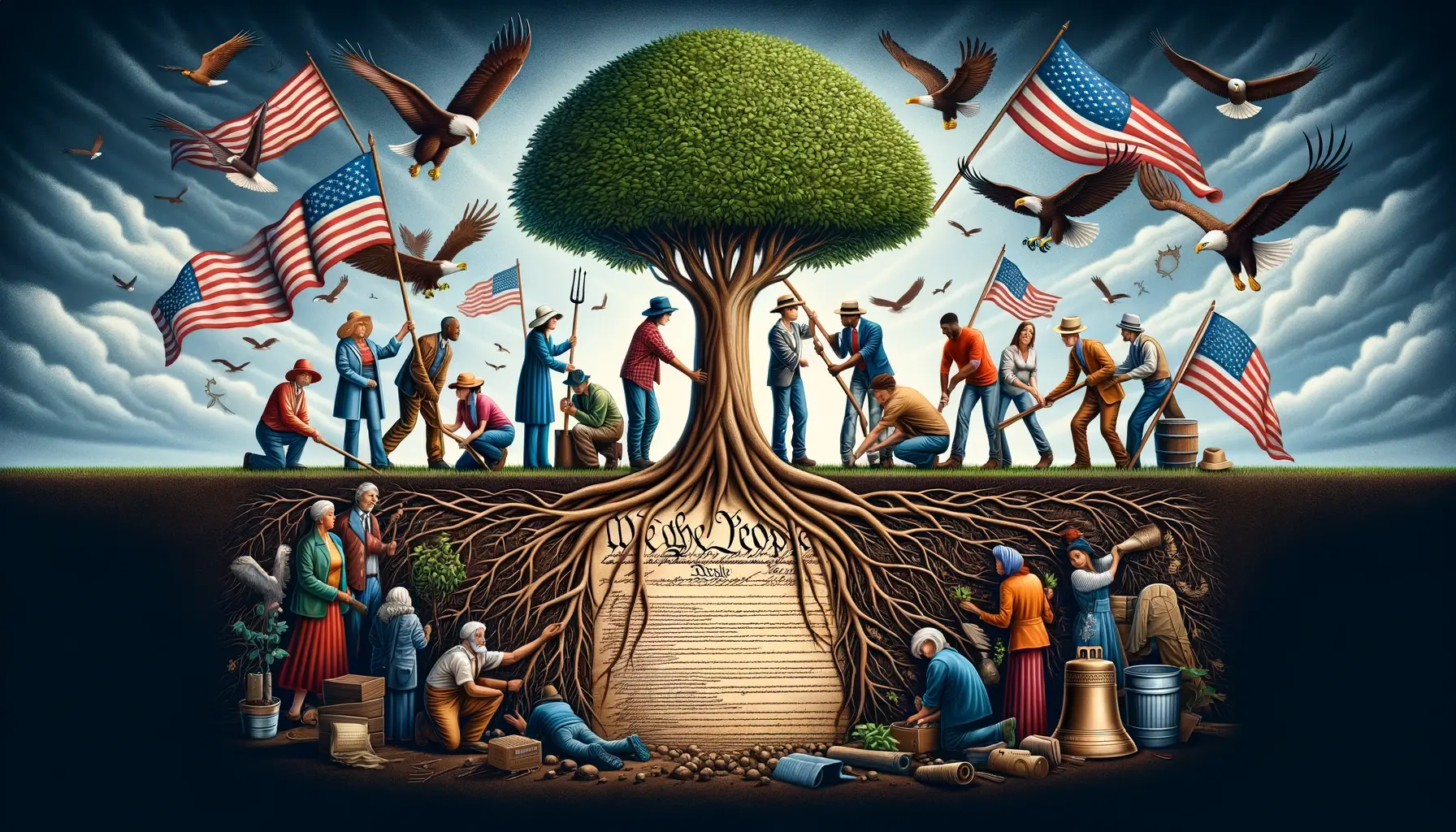
Ensuring Fair Representation in Media and Academia
The media and academia are influential institutions that shape public perception and knowledge. It is crucial, therefore, that they offer fair representation of diverse viewpoints and accurately reflect America's cultural landscape. Advocating for curricula that value Western cultural values, constitutional principles, and honest portrayals of America's past can counter the trend of ideological bias. Supporting media outlets that strive for unbiased reporting and provide a platform for patriotic narratives will promote intellectual diversity and balanced discourse.
Through these concerted strategies, Americans who hold traditional values dear can begin to reclaim control of the cultural narrative. The battle for the nation's heart and soul is ongoing, and it requires a proactive and informed citizenry capable of imparting the significance of cultural preservation to subsequent generations. By valuing the past and navigating the present with vigilance, Americans can ensure the future reflects the founding principles that have long guided the nation. Reclaiming the narrative is more than a call to remember—it is a charge to shape an American story that remains true to its roots while facing the challenges of a modern world.
Cultural Preservation in Action
Success Stories of Cultural Revival
Throughout the United States, there are inspiring examples of cultural revival where communities have successfully safeguarded and rejuvenated their local traditions and values. These success stories often begin with a collective realization of the imminent loss of cultural heritage and a determined response that leverages community engagement, education, and public support. From small towns revitalizing historical districts to movements that have brought traditional American music and arts back into the mainstream, there is clear evidence that cultural preservation can be achieved with concerted effort.
Case Studies: How Communities Have Reclaimed Their Narrative
Analyzing case studies provides concrete strategies for cultural preservation. Communities that have embraced their historical monuments, celebrated their unique local holidays, or restored native language programs exemplify how a concerted effort can result in reclaimed cultural narratives. These examples serve as blueprints for others to follow and demonstrate that when a community is united in purpose, even the most marginalized aspects of their culture can be brought back to prominence and integrated into the national storyline.
Leveraging Technology and Social Media
In the digital age, technology and social media are powerful tools for advocating cultural preservation. By creating online platforms dedicated to education and the dissemination of historical knowledge, patriotic groups can reach a global audience and build solidarity among like-minded individuals. Technology also allows for the virtual restoration of historical sites, digital archiving of significant documents, and the spread of traditional American values through innovative means, ensuring that the national narrative stays current and accessible.
Conservation of Historical Sites and Artifacts
The tangible elements of cultural heritage, such as historical sites and artifacts, require practical measures for their preservation. This often involves a synergy between government entities, private organizations, and citizen activists who are all committed to the conservation efforts. The protection of these sites from urban development, neglect, or vandalism is crucial not just for their intrinsic value but for their role in educating future generations and maintaining a physical connection to the nation's past.
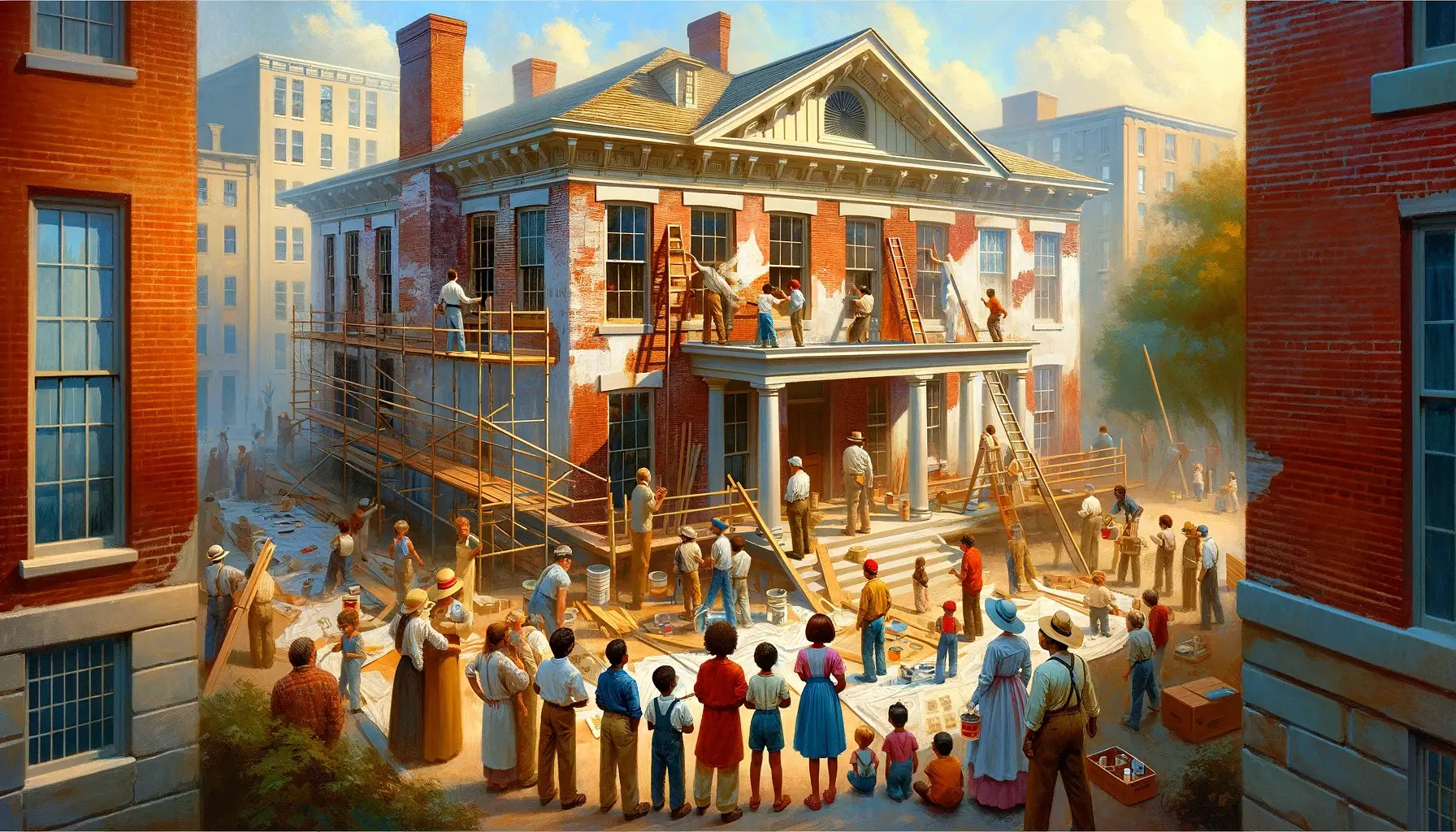
Cultural preservation does not occur in a vacuum. It is an active, ongoing process that entails the engagement of all sectors of society in a unifying endeavor to maintain the integrity of America’s historical narrative. By celebrating success stories, analyzing case studies for best practices, leveraging modern technological tools, and conserving physical embodiments of our heritage, the American people can take concrete steps toward ensuring that their cultural legacy endures. The challenges are significant, but as history has shown, American resilience and dedication to national values are strong – capable of not just preserving but also enriching the tapestry of the nation’s storied past and dynamic present.
Conclusion
Summarizing the Imperatives of Cultural Preservation
As we reflect on the journey through the American cultural landscape, the imperatives of cultural preservation remain clear and compelling. The need to maintain the integrity of America's historical narrative is not only about honoring the past—it is also about shaping a future that reflects the nation's founding principles and traditional values. Cultural preservation serves as the bulwark against the erosion of national identity and the creed that binds the nation's diverse populace to a common purpose.
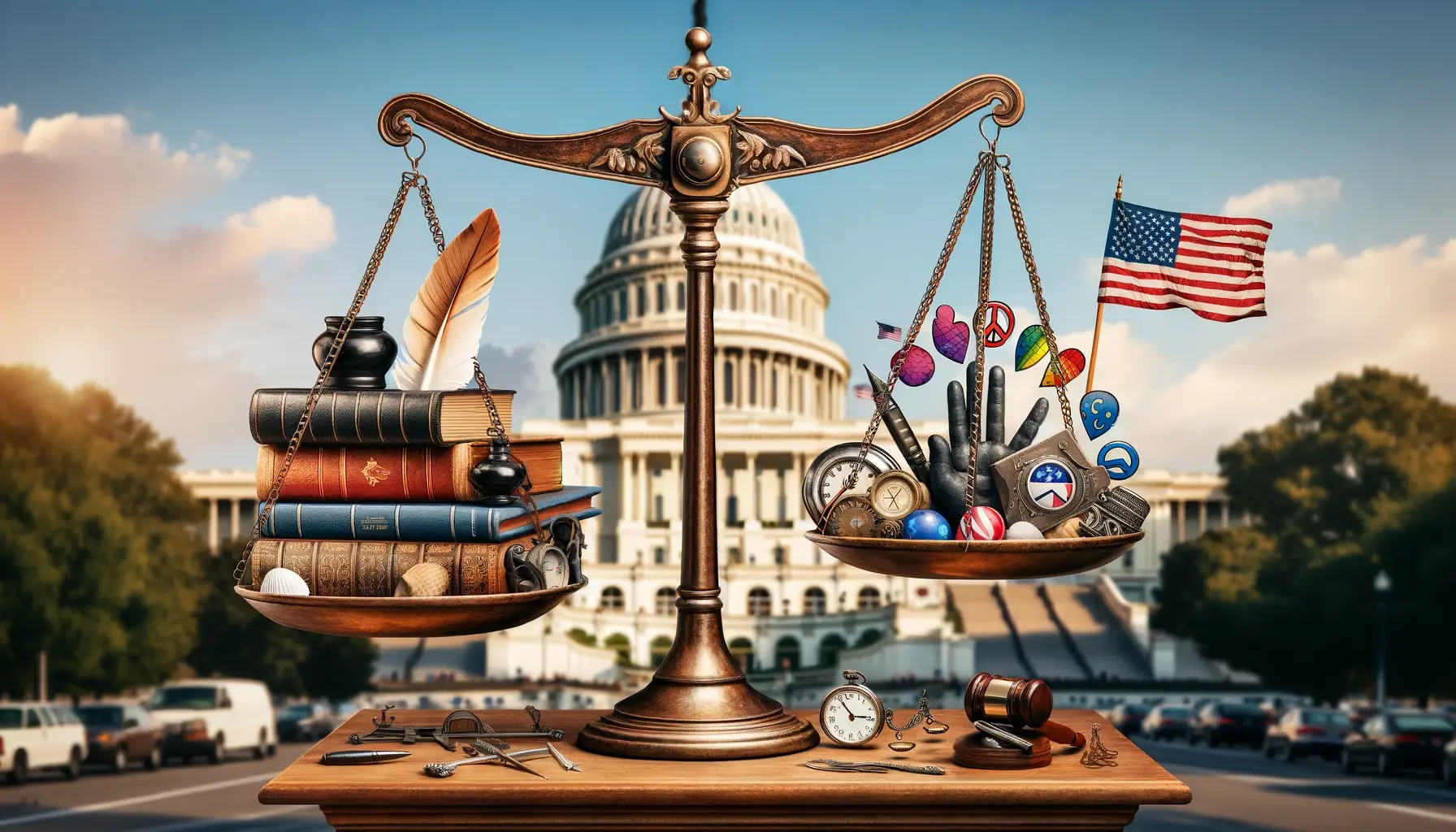
The Role of Individuals in Shaping the Future
Cultural preservation is not solely the domain of historians or institutions; it is the collective responsibility of every American citizen. Each individual has a role in shaping the future narrative of the nation, whether that be through civic engagement, education, participation in local traditions, or contributions to public discourse. The American story is continually written by those who actively choose to become stewards of heritage and advocates for the values that define the nation's character.
A Call to Action for Americans to Reclaim Their Narrative
In this call to action, every American is summoned to partake in the noble task of reclaiming and fortifying the cultural narrative. It is a call steeped in the recognition of the nation's resilience, the reverence for its Constitution, and a determination to safeguard the freedoms that enable cultural expression. The path to reclaiming the narrative may be fraught with challenges, but it is a path illuminated by the torch of liberty—a beacon that has guided countless generations to persevere in their devotion to the American saga.
As we forge ahead, let us carry the mantle of cultural preservation with pride, aware of the gravity of our undertaking and the potential of our collective effort. Let us remember that the fabric of our nation is resilient precisely because it has been woven from myriad threads, each strengthening the whole. By embracing our shared history and preserving the cultural tenets that unite us, we ensure that the American narrative remains not just a chapter in history, but a vibrant and enduring legacy that continues to inspire the world.

Appendix
Resources for Further Reading and Involvement
In recognition of the importance of continuous education and active engagement in cultural preservation, an array of resources is recommended for those seeking to deepen their understanding and contribute meaningfully to the conservation of America's narrative.
Organizations Dedicated to Cultural Preservation
Numerous organizations operate with the mission to uphold and promote America's historical and cultural legacy. These groups range from historical societies and preservation trusts to cultural advocacy groups and educational foundations. They provide avenues for individuals to connect with others who share similar goals and to participate in collective efforts geared towards preserving the American narrative.
Educational Tools and Materials for the Next Generation
The future of cultural preservation lies with the education of the next generation. By equipping youth with the knowledge and appreciation of their nation's history and values, they become empowered to carry forward the torch of American identity. A diverse selection of educational tools and materials designed for various age groups can provide the foundational understanding necessary to appreciate and engage in cultural preservation initiatives.
Through engagement with these resources, organizations, and educational materials, individuals can forge a deeper connection with the American narrative and join the ranks of those committed to ensuring its continued prominence and integrity. It is through individual and collective action alike that the narrative of America—one that speaks of resilience, innovation, and an unwavering commitment to freedom—will endure for generations to come.
